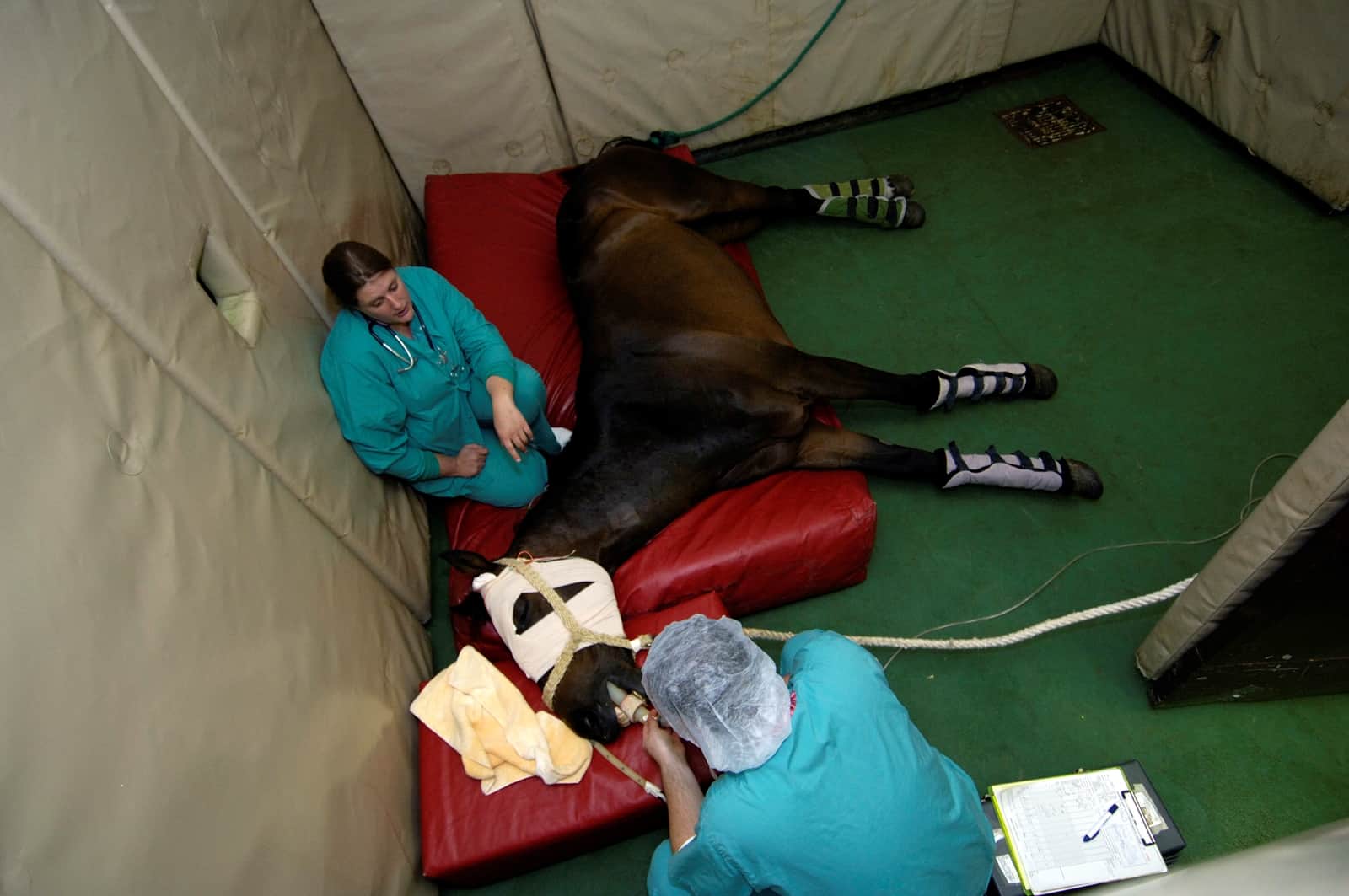Epidural Opioids Before Hind-Limb Surgery Improve Recovery

Horses waking up from general anesthesia can injure themselves trying to stand while still partially “asleep” from anesthetics. But those that have received epidural opioids such as morphine and methadone beforehand generally make fewer efforts to stand and do so more calmly, with less risk of injury, said Luis Filipe Louro, DVM MSc CertAVP(EL) AFHEA MRCVS, resident in Veterinary Anaesthesia and Analgesia at the University of Liverpool’s Institute of Veterinary Science, in Neston, the U.K.
This could be because the horse’s hind limbs feel more comfortable immediately after surgery. He’s thus more willing to lie peacefully in the stall, rather than frantically trying to get up and find a less painful position, Louro explained.
Although general anesthesia keeps horses from feeling pain during surgery, their bodies still experience the trauma of the surgical procedures. After general anesthesia wears off, the horses feel the pain of that trauma—as well as the pain they had before the surgical procedure that caused them to be lame in the first place, he said.
That presurgery pain stems from the lesion that needs surgical repair and possibly other lesions such as arthritis, said Louro. So the morphine or other opioids diffused through the epidural space bring pain relief to the full spectrum of sites in the hind limbs that might have pain from or before surgery. The effects last well through to the recovery period, he said.
Louro and his fellow researchers investigated 170 cases of horses undergoing surgery for hind-limb joint sepsis (infections) under general anesthesia at the University of Liverpool. About half the horses received presurgical opioids through epidural administration. These horses didn’t take longer to stand up correctly after general anesthesia, but they made fewer attempts to stand up and had fewer complications with those attempts.
“Our findings suggest that the horses that received an epidural (with an opioid drug) before surgery stood up from general anesthesia in a more controlled fashion,” said Louro.
Welsh pony cobs appeared to be an exception, he added. Although epidural opioids improve their quality of recovery, the breed itself is at such risk for recovery-related incidents that the differences with epidural opioids are less flagrant. “Cobs have been reported to be considerably more excitable and anxious than other breeds,” Louro said. “Horses with more difficult temperaments normally stand up from general anesthesia in a more chaotic fashion, suggesting that temperament may be an important factor associated with poor quality of recovery from general anesthesia.” The scientists didn’t have data on these particular patients’ temperaments, however, he said.
“We strongly believe that good-quality pain relief is a very important aspect of management of lameness in the horse,” said Louro. “Recognition and quantification of pain is one of the biggest challenges in veterinary medicine, especially in a prey species such as the horse. Our study shown that opioid epidural analgesia significantly improves the quality of recovery from general anesthesia.”

Written by:
Christa Lesté-Lasserre, MA
Related Articles
Stay on top of the most recent Horse Health news with















